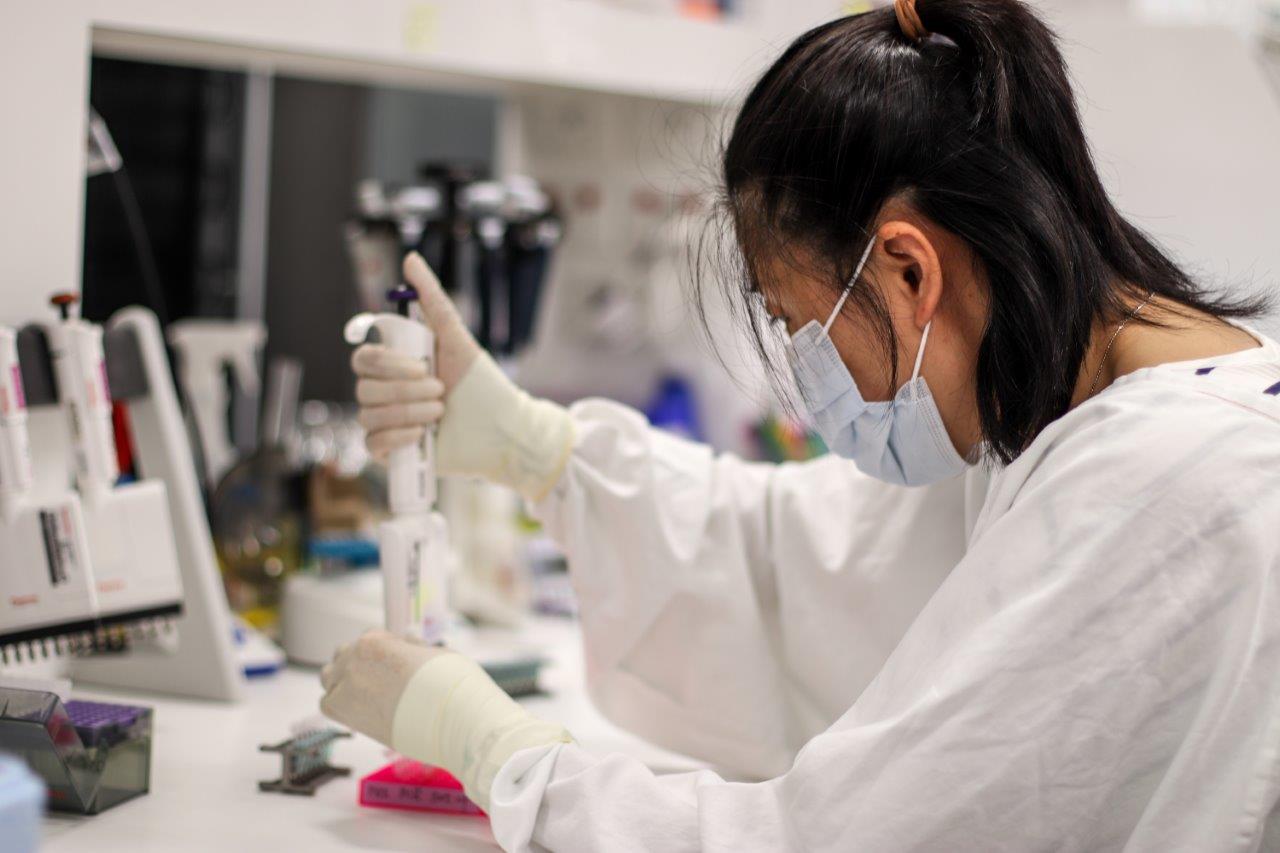
Innovation in the DNA at clinical institutes
District institutes to come together for Innovation Week forum.

When 64-year-old Laura* presented at Canterbury Hospital’s Emergency Department with shortness of breath, coughing and fever, initial tests suggested she had lung cancer.
Doctors needed to find out more to confirm her diagnosis, but Laura’s condition was deteriorating, meaning an invasive biopsy was not an option.
She was transferred to RPA Hospital, where staff had introduced an innovative new form of non-invasive DNA testing called cfDNA.
Also known as liquid biopsy, cfDNA is a process whereby genomics professionals search blood samples for the DNA from tumour cells, explained Professor Ron Trent, the hospital’s Head of Medical Genomics.
The liquid biopsy of Laura’s blood sample not only supported the cancer diagnosis but also revealed the gene mutation behind the cancer, which helped her clinicians to select a treatment option specific to the mutation.
In short, this innovation allowed for a personalised intervention for Laura.
“Without cfDNA, this patient would not have been treated or treated blindly with less chance of getting a response,” said Professor Trent.
RPA is the only public hospital in the state where this somatic cell DNA testing service, led by Honorary Principal Hospital Scientist Professor Bing Yu is available, he continued.
“It is technically a very difficult test but the technical expertise and skills at RPA are probably the best anywhere in New South Wales.”
Precision medicine uses knowledge of a person’s genes to identify how best to keep them healthy, allowing care to be tailored to the individual.
At our District’s Institute of Precision Medicine and Bioinformatics, working with NSW Health Pathology, Professor Trent, Professor Yu and their colleagues are determined to ensure that patients with cancer benefit from this new approach to care.
It’s just one example of how our District’s clinical institutes embed innovative care across our facilities.
The clinical institutes bring together leading clinicians and expert researchers to tackle complex health challenges through novel interventions.
It’s an approach that results in better outcomes for patients, their carers, clinicians and researchers, said Professor Victoria Cogger, Director of the ANZAC Research Institute at Concord Hospital.
“We are challenged to ask better questions, to provide more thoughtful answers and are encouraged to provide better care when we are connected and working together,” she said.
This Sydney Innovation Week, experts from each of our institutes will come together for a special forum to highlight their work and opportunities for collaboration.
Among those looking forward to the event is Dr Sophie Hogan, Director of the Institute of Academic Surgery at RPA.
“It will provide opportunities to share knowledge, learn from each other and work together to help support and promote research and education in the District,” she said.
Also taking part in the forum are the RPA Green Light Institute, the Institute for Musculoskeletal Health, Concord Institute of Academic Surgery, the Sydney Institute for Women, Children and their Families and the newly established RPA Institute for Academic Medicine (IAM).
“Collaboration with our peers helps sustain a vibrant research community, identify new opportunities, promote existing strengths, capacity build and ultimately, improve patient outcomes,” said Mariana Sena Board, Acting Senior Research Operations Manager at the RPA IAM.
Visit the Sydney Innovation Week website to register for the Clinical Institutes: Bridges to Innovation forum or other events throughout the week.
*Patient’s name has been changed.
[ENDS]